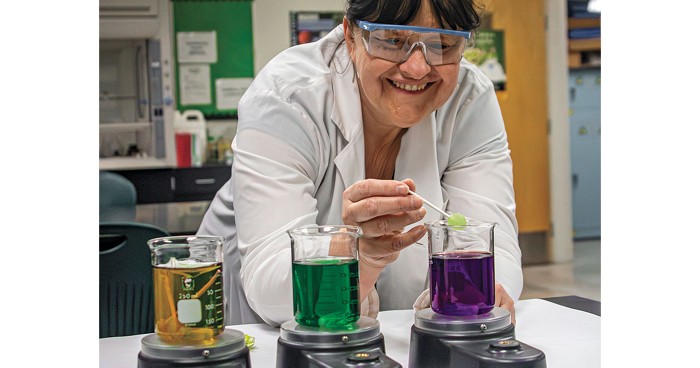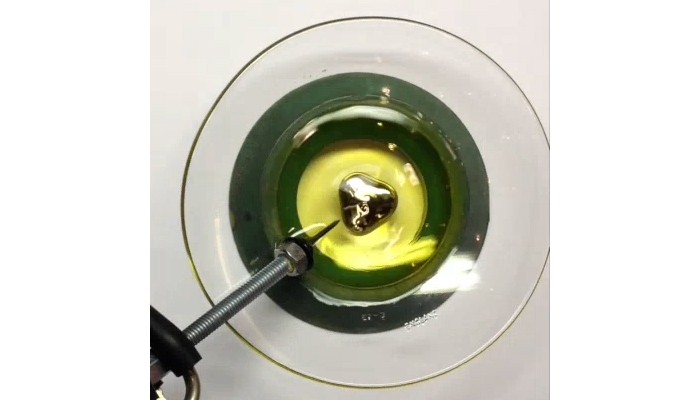Advertisement
Grab your lab coat. Let's get started
Welcome!
Welcome!
Create an account below to get 6 C&EN articles per month, receive newsletters and more - all free.
It seems this is your first time logging in online. Please enter the following information to continue.
As an ACS member you automatically get access to this site. All we need is few more details to create your reading experience.
Not you? Sign in with a different account.
Not you? Sign in with a different account.
ERROR 1
ERROR 1
ERROR 2
ERROR 2
ERROR 2
ERROR 2
ERROR 2
Password and Confirm password must match.
If you have an ACS member number, please enter it here so we can link this account to your membership. (optional)
ERROR 2
ACS values your privacy. By submitting your information, you are gaining access to C&EN and subscribing to our weekly newsletter. We use the information you provide to make your reading experience better, and we will never sell your data to third party members.
Outreach
Why we’re turning off commenting on cen.acs.org
To keep C&EN spaces welcoming, inclusive, and useful for all, we’ve refocused how readers provide feedback
by Amanda Yarnell
February 15, 2021

As a member-focused newsroom, C&EN is committed to building trust—and relationships—with our readers. We’re also committed to doing all we can to ensure that C&EN spaces are welcoming, inclusive, and useful for all.
Unfortunately, we continue to see uncivil and even hateful comments as well as unproductive discussion and misinformation on some stories on cen.acs.org.
Vigorous debate is how science moves forward. But the kind of discourse we’ve seen in the comments section is incompatible with being welcoming and inclusive to all our readers. In addition, researchers have shown that exposing readers to uncivil comments can harm their perceptions of the science reported (J. Computer-Mediated Commun. 2014, DOI: 10.1111/jcc4.12009).
In the past, we’ve responded by closing comments on some stories and never opening them on others. For consistency, we’re now going one step further: we’re no longer accepting comments on most stories on cen.acs.org.
We may occasionally open comments on a specific story to ask readers to engage in deeper discussions with our reporters. Previously published comments were deleted on May 23, 2022, because of a change to C&EN’s content management system—the program that publishes articles on our website.
We still want to hear from you. We do our best work when readers guide us and hold us to the highest standards. So we hope you’ll continue to interact with us:
Tell us what stories you want to see. If you have a story idea or tip, contact one of our journalists. For example, readers’ tips sparked C&EN’s coverage of workers’ compensation coverage for graduate students, US immigration changes’ effects on chemists, and sexual harassment in chemistry. We’re particularly interested in hearing about stories that matter to marginalized groups in the sciences.
Send us letters to the editor. We regularly publish a selection of letters we receive—for example, those that offer smart critique of our journalism or those that continue the conversation on an important topic—in our Reactions section. In 2021 we plan to launch an Opinion section on cen.acs.org to give more space for our readers’ perspectives. Email us at edit.cen@acs.org to submit a letter to the editor.
Talk to us on social media. We continue to welcome discussion on Twitter and Facebook. Our audience team is committed to keeping these spaces as inclusive and welcoming as possible.
Join us for conversations about issues that matter. During the pandemic, we launched a series of virtual C&EN Table Talks events that brought together readers and C&EN journalists to discuss how to effectively teach chemistry virtually and how to manage your mental health. In May, we gathered experts to answer readers’ questions on Twitter about drug repurposing for COVID-19. In 2021, we plan to open a work space on Slack for graduate students and prospective grad students to learn from and support their peers.
We welcome your feedback on these changes. Write to us at cenfeedback@acs.org.
UPDATE:
This article was updated on May 25, 2022, to note that all comments previously published on cen.acs.org were deleted on May 23, 2022, because of a content management system change.





Join the conversation
Contact the reporter
Submit a Letter to the Editor for publication
Engage with us on Twitter